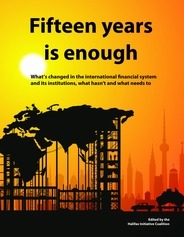Press Responses: June 9, 2010
http://www.embassymag.ca/page/view/tax-06-09-2010
Financial transaction tax is no bank tax
By Fraser Reilly-King
Published June 9, 2010
Big banks can finally breathe a sigh of relief.
This past weekend, Canadian Finance Minister Jim Flaherty managed to rally China, Brazil and South Korea behind him at G20 meetings in Busan, South Korea, and put those pesky discussions about a global bank tax to rest.
Instead of discussing a bank tax at this month's summit, the G20 agreed to "develop principles reflecting the need to protect taxpayers, reduce risks from the financial system, protect the flow of credit in good times and bad, taking into account individual country's circumstances and options."
